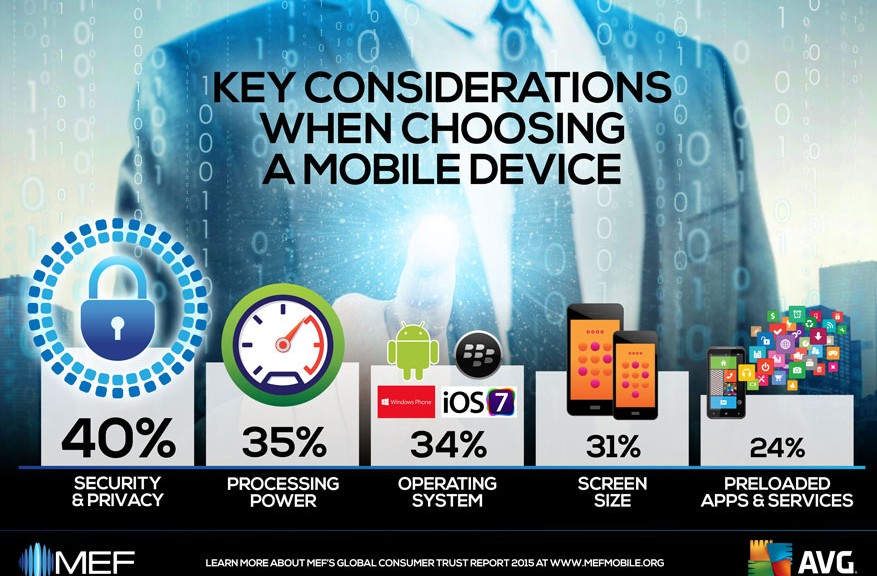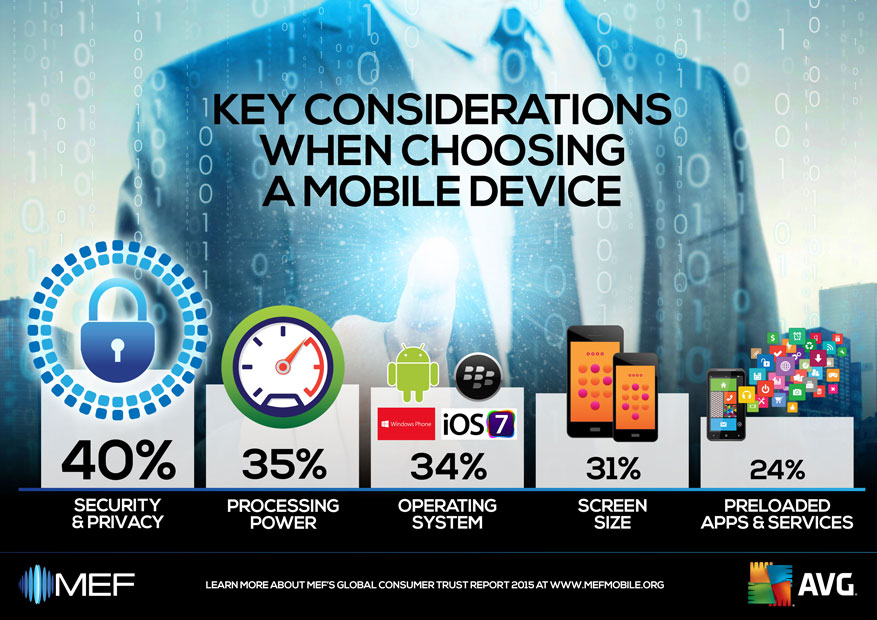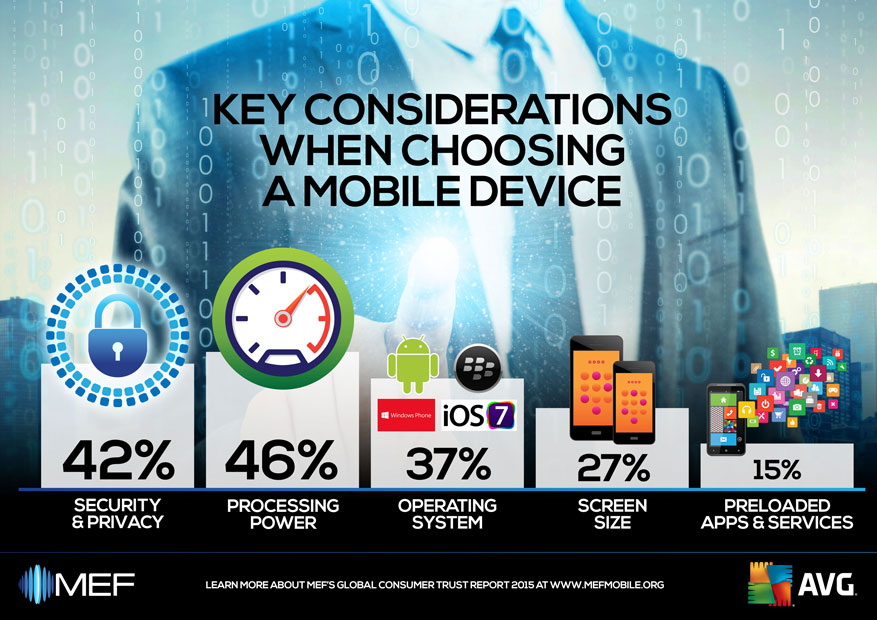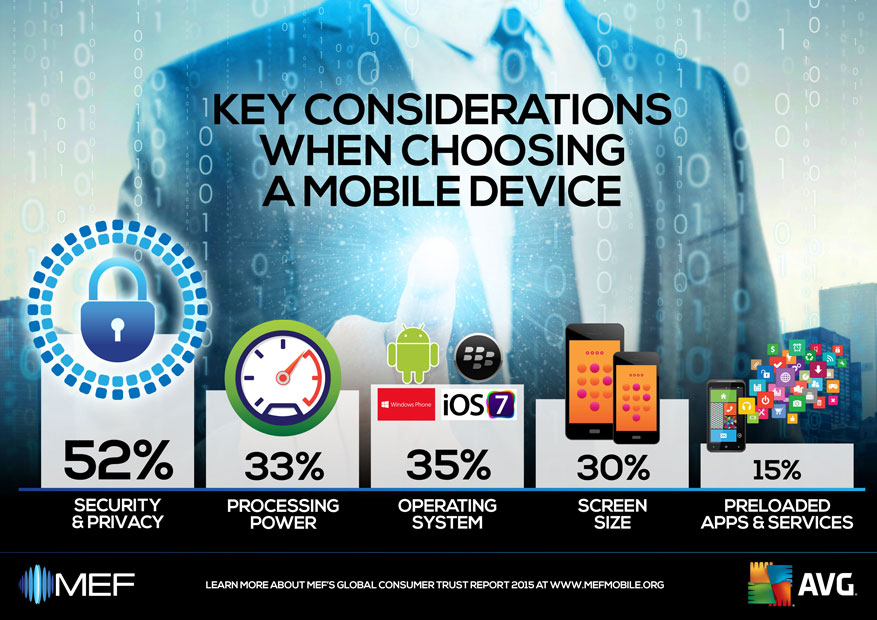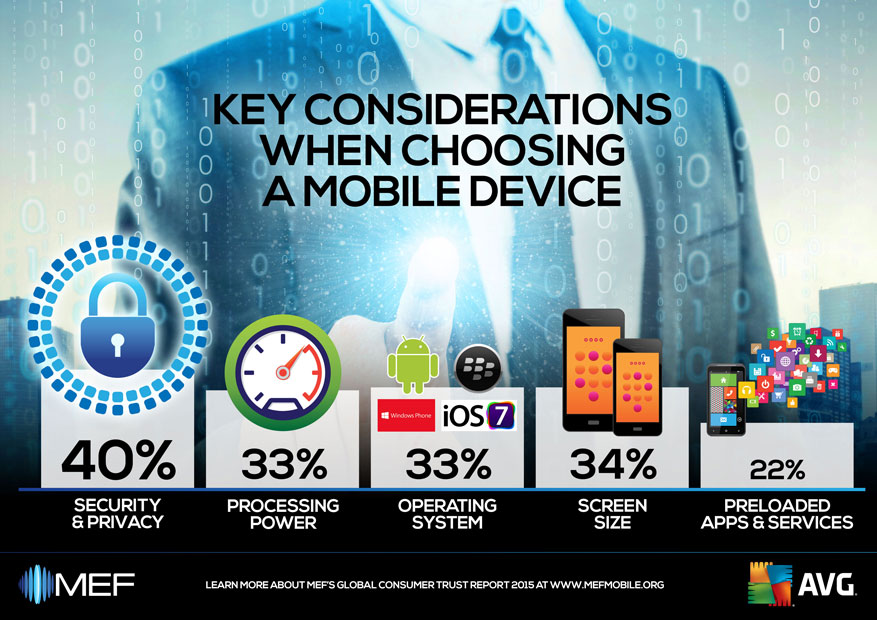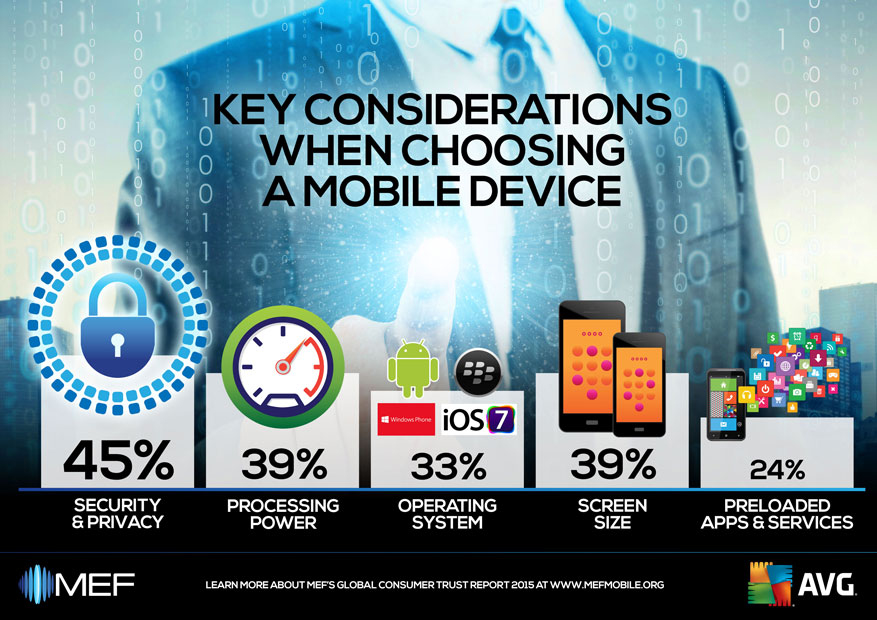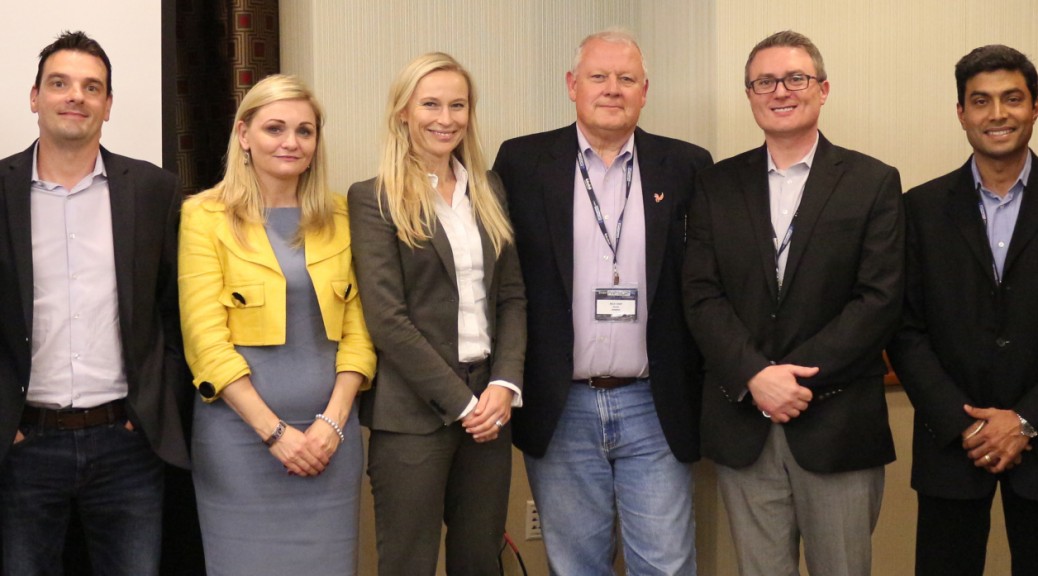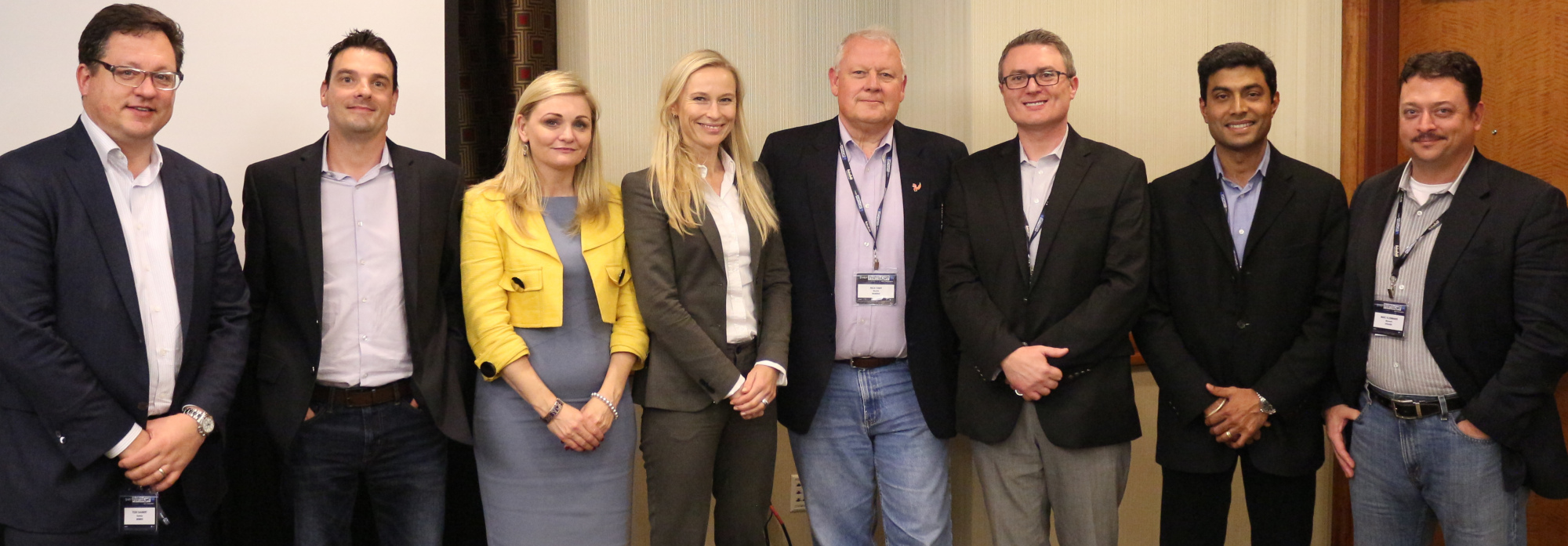We are in the midst of a rapid technology evolution. We’re only four months into 2016 and already we’ve seen two major industry shows dominated by the Internet of Things (IoT).
In January, at CES, the connected home stole the spotlight – highlights included a Family Hub fridge, a Wi-Fi water leak detector and an AR-equipped robot vacuum.
The trend continued at MWC where a smart air conditioner, 4G-enabled security camera, and smart shoes were on display. If these two major events are any indication, the horizon shows a hyper-connected future. But what are the trust issues at hand?
AVG collaborated with the organization, MEF, on its global survey to take a look at consumers’ concerns around the future of IoT. According to the MEF survey findings, people are enthusiastic about a connected future – when asked about their concerns around IoT, only 1 in 10 said there would be no tangible benefits. Yet, as the network of IoT devices grows, so too do consumers’ concerns about what this increased connectivity and data sharing means for security.
As a security company, it is our responsibility to recognize and unpack such concerns so we can use that insight to address fears and vanquish threats down the road.
The MEF study, which surveyed over 5,000 mobile users in eight markets, examined consumer perceptions about the future of a connected world. The findings are significant, and indicate tremendous worry about a world of inter-connectivity:
- 60% said they worry about a world of connected things.
- Privacy (62%) and security (54%) are seen as the biggest threats worldwide.
- One third of respondents in all 8 countries don’t want to share personal information but know they must if they want to use an app (up to 41% from 33% in 2015).
- Home security raises the most concern among connected devices and applications.
MEF’s research shows a consistent decline in consumer trust, which continues to dip as the war on privacy wages on, leaving consumers to decide what data tradeoffs are worthwhile.
If we, as an industry, don’t address these trust issues, consumers may disengage since they will no longer be willing to sacrifice their privacy for greater connectivity. Considering that 62% of consumers already name privacy as their top concern when it comes to the IoT, that tipping point is likely to arrive sooner than we expect.
In order to respond to consumer concerns and stop the erosion of trust, the industry has to act. And when we do, it is vital that we don’t let our desire to get products to this burgeoning market quickly trump the need for responsible and secure design. Security cannot become an afterthought as we innovate toward connectivity.
If we care about our consumers and about the potential and longevity of IoT, we need to make ‘security by design’ a fundamental approach, regardless of device.
![]()
![]()
